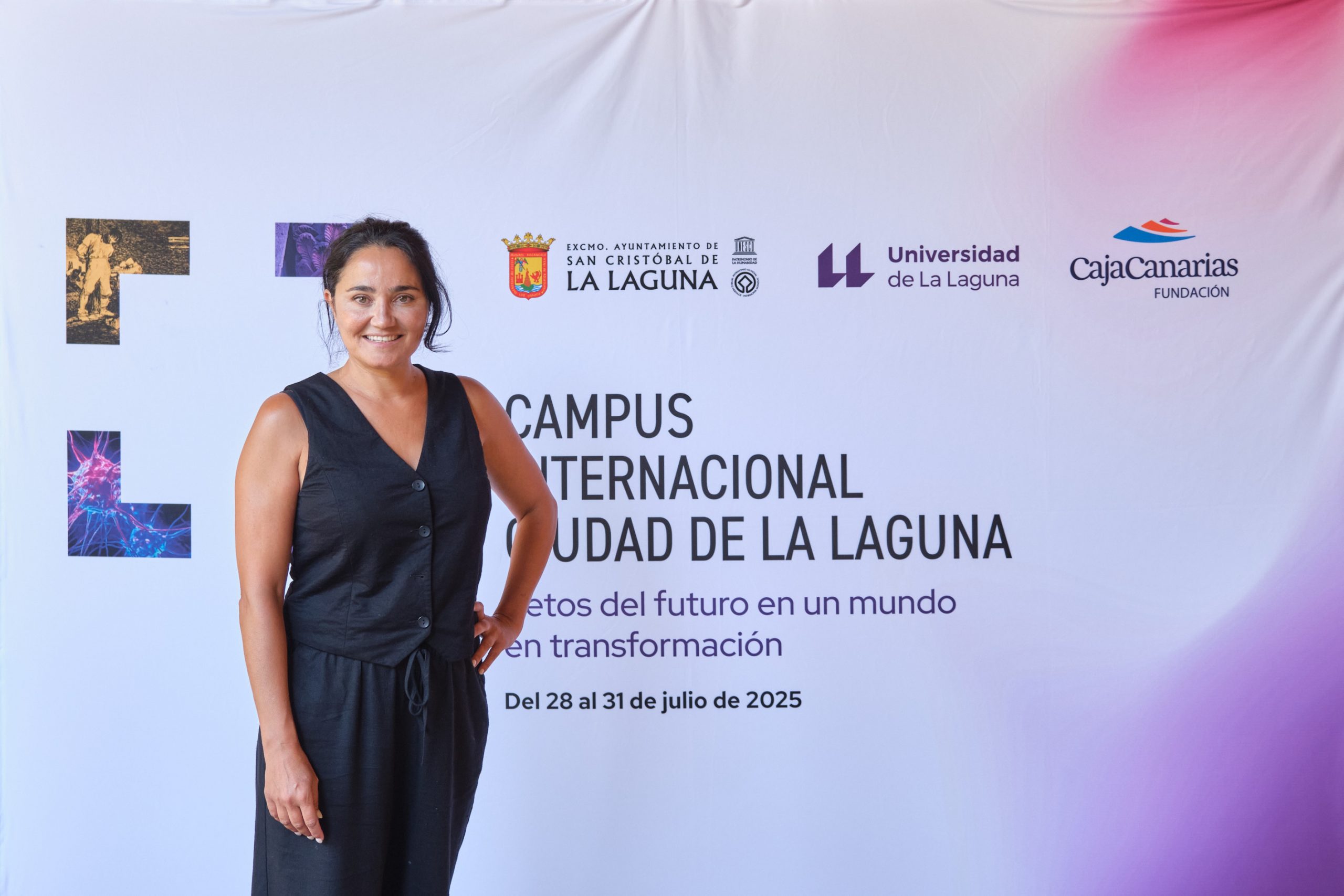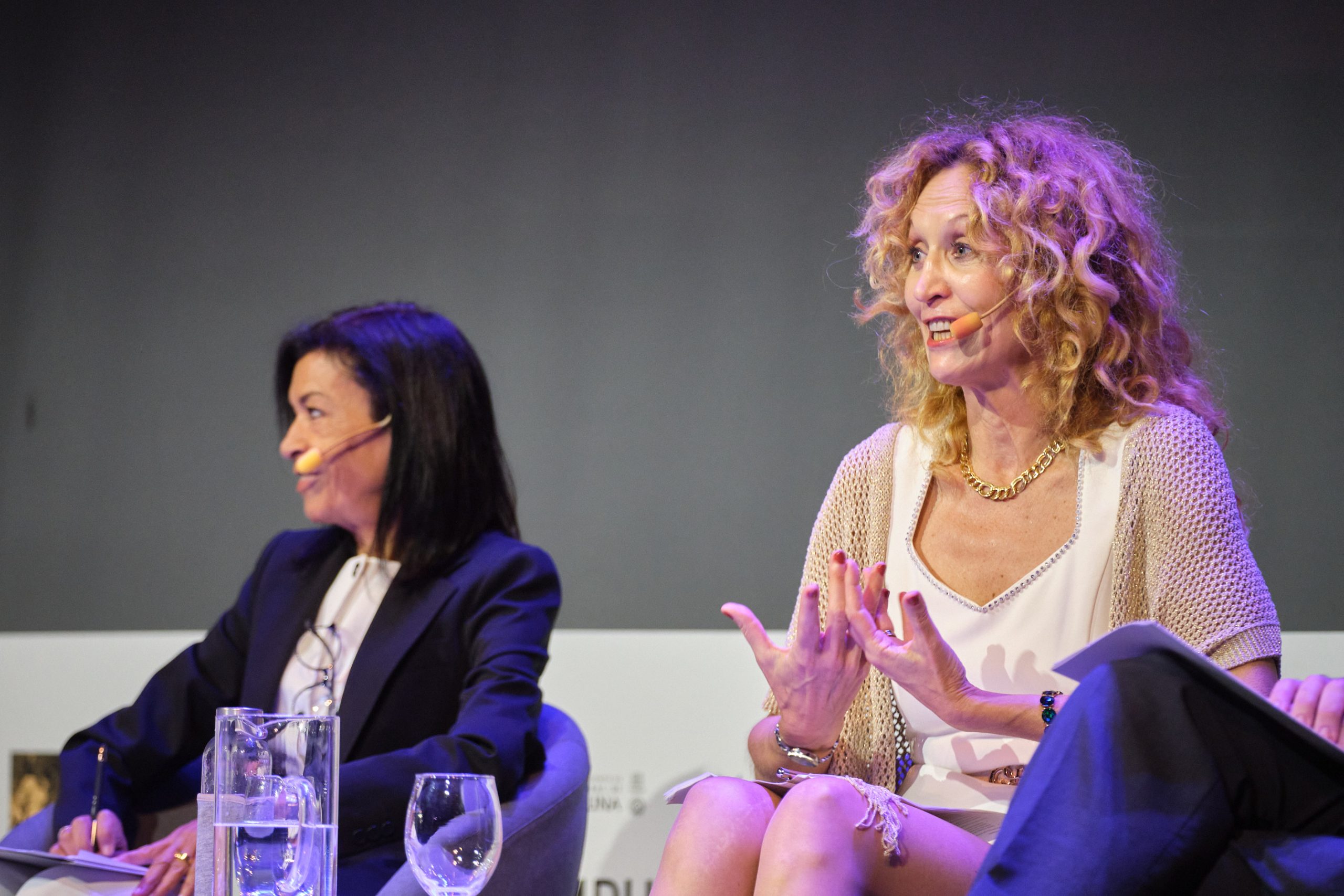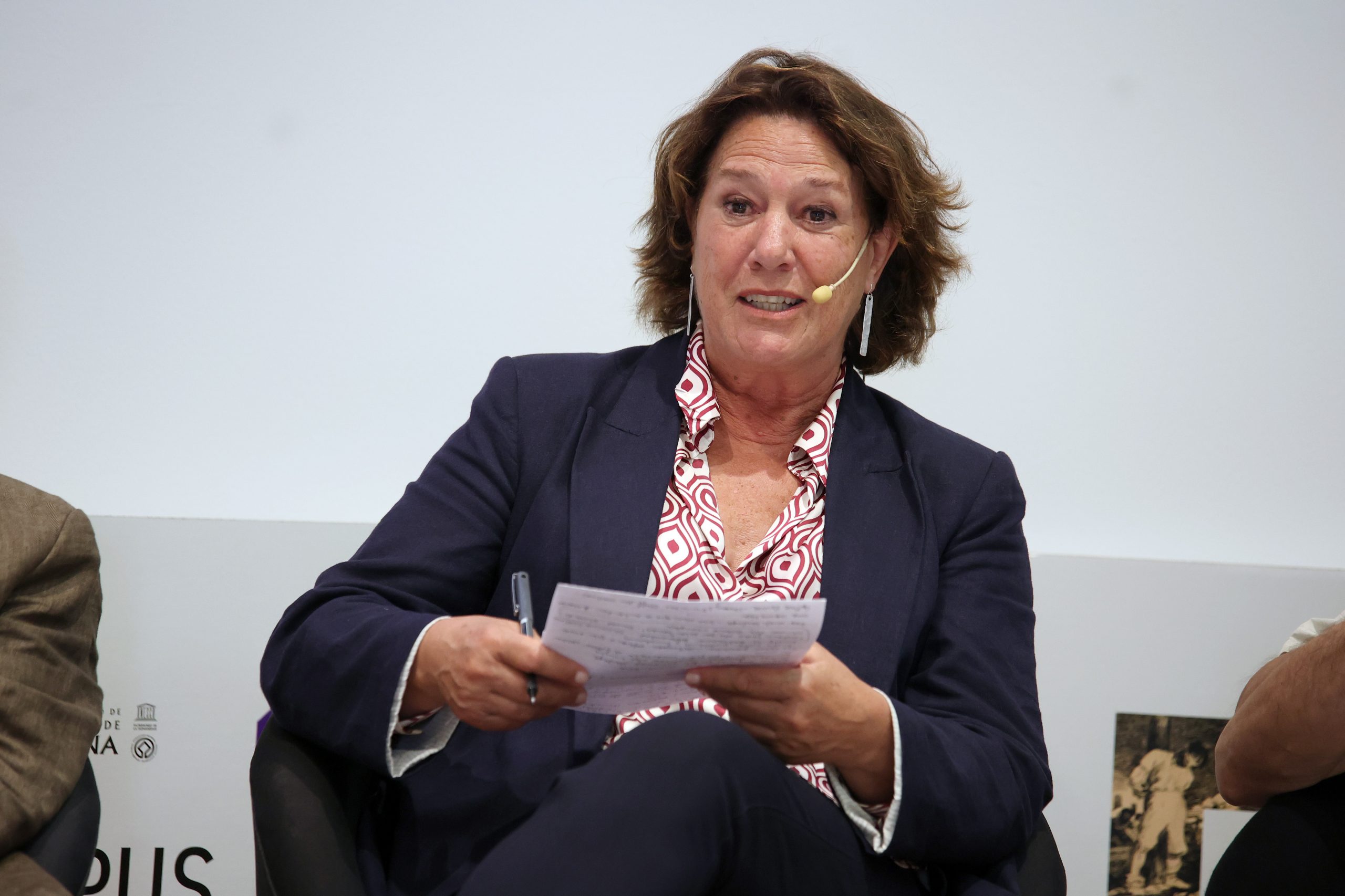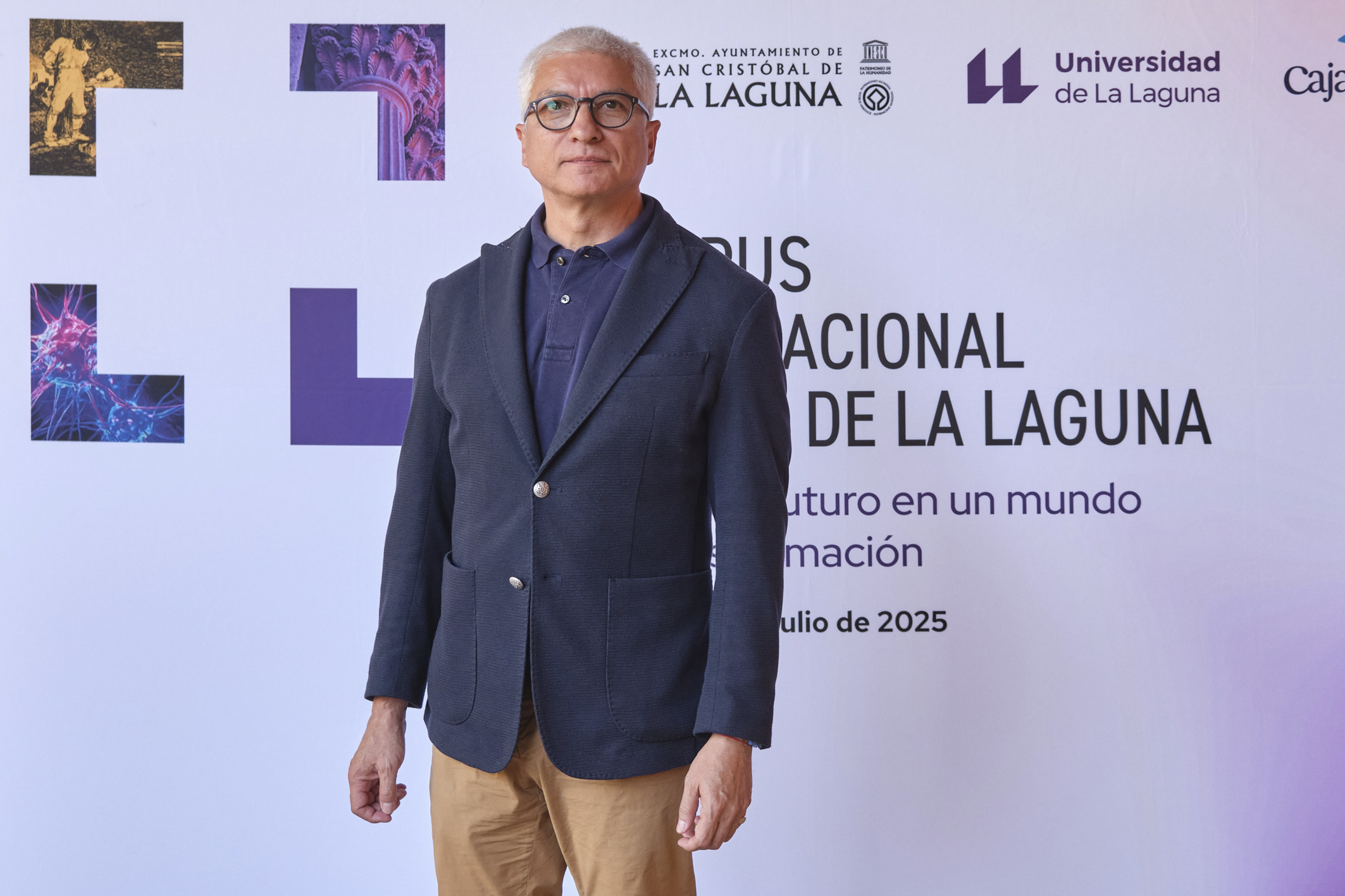Interview conducted by
Nira Llarena . Press and creative editor.
As much as one puts its empathy to work at full machine, it is very difficult to understand what is the engine that drives people like Alberto Hugo Rojas. Where that obstinacy arises to enter the most bloody and undesirable of the human condition. And not in isolation, but as a way of life that molds both the professional and the most intimate and personal aspect. If the world has an abhorrent reverse is that of war, a dirty business that stains and destroys everything in its path, chaining us to an eternal present of grotesque images like those that Goya already painted centuries ago in its series "The disasters of war." Perhaps similar to the Aragonese teacher, Rojas, portrays the most earthly side of the conflict: not the epic, but the silent suffering. And, listening to it, a glimpse its conviction, the energy that feeds that engine: someone has to tell it, those stories have to be narrated because those people deserve peace and not forgetting.
With more than two decades covering armed conflicts, this graphic reporter in war areas born in Lanzarote has turned his gaze into a bridge between fractured worlds. In 2024, his land recognizes him as a rabbit of the year, a tribute that honors not only professional merit, but also the courage with which he has assumed his trade and effort to promote the culture of peace among the youngest.
It will accompany us on this International Campus Ciudad de la Laguna participating in a round table, in addition to chattering an exhibition that can be visited in the CajaCanarias Cultural Space of the Plaza del Adelantado , in La Laguna.
In this interview, Rojas reviews his experiences on the ground with the honesty of those who have learned that, sometimes, the bravest is simply accompanying those who need it.
The first conflict you covered was that of Palestine and Israel. You traveled in 2002 and, very then, in 2003. More than 20 years have passed since then, how do you remember those first experiences?
Yes, I was very young and very afraid. In 2002 I went to take pictures and returned in 2003 because I needed to tell it on video, I did something similar to a travel diary. It seemed so tremendous everything. When I arrived in the area for the first time, we were talking about a historical moment: the second intifada, with vivo Arafat and with Israel besieging Palestine for a month, blocking even the Mukata, the Palestinian administrative headquarters.
This happened for a whole month and I could document it. Lately I like to say that our work is a warning work. At that time we already noticed where this conflict was going to go.
And what sensations produces you to see the status of this conflict today?
Many other journalists and I witnessed the beginning of the construction of the Israeli separation wall on Palestinian soil, which was already convicted by the Hague Court. The following were the illegal settlements and, already at that time, he began to talk about apartheid. Then the bestial offensive in Gaza in 2014, which stopped, in large part, precisely because of the presence of foreign media.
This situation has been making visible for a long time and is not an "Pro Israelí" or "Pro Palestine" or "Pro Ukrainian" vision. No: it is a "pro -life" vision.
Lately I like to say
that our work is
a warning job
We are living an overlap of conflicts, with one at the doors of Europe that does not seem to have a short -term solution. You have been in Ukraine on several occasions, the last recently. What impressions do you bring from these experiences?
On the one hand, it is striking that depends on the conflict you cover you are better or worse journalist. There are people who tell me with a sorrow "Oh, you are covering the Middle East, but if you were covering Ukraine" and my answer is always the same: I make a story of the people, not a political story.
For the rest, I think it is very important that we continue to support the Ukrainian population. Hopefully I am wrong, but I think this conflict will not have an easy solution. The Ukrainian society is already very tired. Unlike the first year, that people believed that Ukraine was going to win, in my last job I could appreciate that fatigue. They are sacrificing a whole generation of young people, men and women. The forced recruitment age has been lowered at age 25 and it is possible that it goes down again. And there are already many people who do not want to fight, many people are leaving the country.
From my organization, Paz under construction, I promote that it is understood that we cannot drop Ukraine. And it is not a matter of sending more weapons, but to understand that if Ukraine falls, any other European country could go behind and what we are talking about are fundamental human rights and freedoms.
So, at this point, I think it is very important that we have clear what are the fundamental values of the European Union: human dignity, freedom, democracy, equality, the rule of law and human rights. We cannot forget them and we must continue doing an important pedagogy work.
Let's talk about the profession of the war journalist. I find it contradictory that professionals like you are usually admired and publicly recognized but in practice they work in very precarious conditions and with little protection. I remember, for example, José Couto Oa Julio Anguita Parrado, sadly deceased. How would you describe the current context for war journalists?
Unfortunately, the work we develop stands out, but we have no security. Precarization has gone more in these years. The Spanish media pay you a real misery for a photograph or an article. As freelance the situation is very limit. For example, the bulletproof vest and the hull with them through reporters without borders leaving a bond. In addition, many we borrow: the projects work through loans and when you get something you cancel and move again. And, being freelance, it is very difficult to get press permits. For example to cover the Palestinian conflict, Israel makes it very difficult. Or in Ukraine they ask you to show a letter from a medium that supports you.
On the other hand, our working life, at the contribution level, is almost non -existent. The issue of retirement will be very complicated.
In my case, I publish less and less, not only for this unfair remuneration, but for how my work will be used. Many times they have published my photos taking them out of context and have been used to misinform.
We assume a bestial risk that, when they kill you, has great recognition, but while we perform our profession we are not protected.

The true heroicity is that of the people who play life; I can give you hundreds of examples of normal people who in places of conflict put their lives at risk of helping others
For a few years we see how armed conflicts are not just counted by journalists. The generalized use of mobile phones allows the protagonists to tell what happens in the first person and practically live. What do you think about this phenomenon?
It is a double edge sheet: on the one hand, we see many things in real time, which are not verified but are used and, on the other hand, it also gives rise to the damn misinformation and propaganda.
We are at a time of a tremendous noise, in which many people question one's reality. I remember the video of a boy, with many followers in networks, who said that the Ukraine War was a montage and that it did not exist. The use of mobile phones allows to observe live things that did not arrive before and were leaked by television channels. And at the same time, the media begin to use material that does not have enough quality, when, not so much, we demanded to have a maximum quality. Now everything is worth. The uncontrolled use of social networks has also contributed to the discredit of our profession. Many photos are taken from context or used without permission, even by "serious media."
For all this confusion, I find the role of filters important and tell reality through its protagonists. For example, in the educational projects that we develop in the Canary Islands I show the history of a Ukrainian girl named Regina that we have followed during the last three years of her life. Thus, young people can see the truth of what war is for someone like them, beyond the instantaneity of an Instagram re -.
Continuing with this, speaking of this current of individualism so strong that we live. Would you say that current society is aware of its vulnerability to a possible armed conflict or humanitarian crisis?
That warning work that told you that we must do journalists also in this line. For example, with climatic emergency. Sometimes I think that any day of these will go out to say: "We are wrong with the calculations and it will not be in five years, but tomorrow, because we have done so bad that we have already reached the point of no return." And the same will always happen, the richest people can pay for the most basic things but the majority of the population, no. I have seen it in wars. True solidarity is based on human rights. And the management of crisis situations must come from institutions, not from international solidarity. I am very critical of, for example, food banks. You, City Hall, you are the one who has to feed, with dignity, to your population that cannot. You, entrepreneurs, have to get involved with your society in crisis situations. In Ukraine, the public and the private are working in coordination after the bombings, it is a great example. There is one thing that is curious in our society: in the media here it has become people who simply help "heroes." We have forgotten the basics of social relations, being a good neighbor. The true heroicity is that of the people who play life; I can give you hundreds of examples of normal people who in places of conflict put their lives at risk of helping others.
The project "Tangled with Human Rights"
has reached more than 20,000 students
You have told me several times about the importance of pedagogy during the interview. Tell us a little about the NGO “Paz under construction” that has been working for years in the educational centers of the Canary Islands.
It all started after the first works on the ground. There I saw clear that we had to bet on education as a path to peace. We came from working in conflict areas and we wanted this experience to transform teachers and young people into human rights defenders. Over time, the project grew so much that in 2020 we became an NGO. What we do does not stay in the classrooms: it expands to families, neighborhoods and even reaches other countries. We accompany, make visible and demand compliance with rights, because each figure of refugees, each missing child is a life that deserves future.
The project that has been developed in recent years is called “entangled with human rights” and has been executed thanks to the support of the Ministry of Youth of the Canary Islands Government and the collaboration of Orfeón La Paz.
The idea is that students understand, feel their own and defend the Universal Declaration of Human Rights, starting from what they see every day in networks, on television or on the Internet. We use the calendar of world days (peace day, day against violence etc.) to, through photographs vertebrates by themes, connect with the international treaties of the United Nations on which there is enormous ignorance. We must remember what are the basis of coexistence in Europe, the human rights framework is very important.
In these three years, from 2021 to 2024, we toured 230 educational centers, with more than 20,000 students and students directly involved and 462 talks taught.
This project, born in the Canary Islands, has become a reference. And best of all, the work done by the students themselves are still alive, available for the entire educational community. In addition to this project, previously, we have done many others and I can say that we have taught more than a thousand talks, for giving you a fact.
I trust that these children who are now more aware of the importance of respecting and defending the rights of all humanity, whether in the near future the mayor or mayor of any of our municipalities. Or the president or the president of our Cabildos or the Government of the Canary Islands. We will continue working to do so.
Despite the hard of the conversation, we say goodbye with laughter with the promise to meet soon at the inauguration of his exhibition in La Laguna. While reviewing the notes I have taken, I keep thinking about that idea that Alberto repeats: that his work, that of so many other war journalists, is a warning. What happens in those other worlds, on those fronts that we sometimes feel distant, it soon splashed. Wars are never alien. Listening to those who have lived them closely becomes an act of responsibility. Do not forget that we will have the opportunity to listen to Alberto and other war journalists at the round table that will be held on July 29 at the Santo Domingo convent or follow her by streaming.












